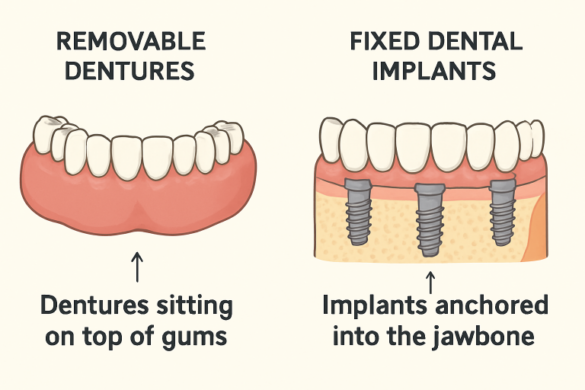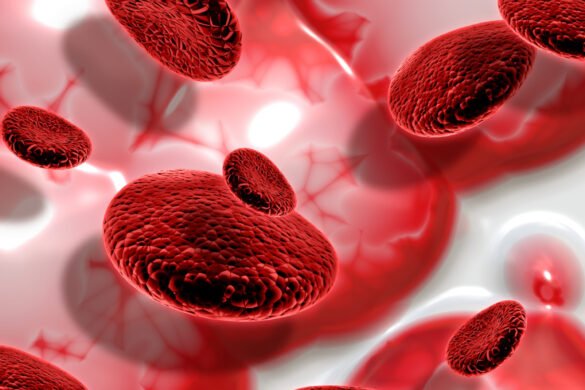Key Takeaways:
- Specialized nutrition is crucial in managing medical conditions by providing tailored dietary solutions.
- Medical research advances highlight nutrition’s importance in disease prevention and management.
- Individualized dietary strategies have mental, quality of life, and physical health advantages.
- Innovative technologies and platforms contribute to the development of personalized nutrition strategies.
The Role of Nutrition in Managing Medical Conditions
Nutrition is not just a component of managing medical conditions but a key driver in improving patient outcomes. Properly balanced nutrition plans address individuals’ needs, offering personalized care that can significantly alter various health conditions. Tailored nutritional plans, including those formulated at a TPN pharmacy, can help maintain and enhance growth and development in patients who need specific intravenous nutrient formulas. Such specialized care is crucial for individuals with complex medical conditions who might struggle with typical dietary intake methods.
Moreover, chronic conditions like diabetes, heart disease, and gastrointestinal disorders often necessitate a detailed nutritional strategy to manage symptoms and minimize health risks effectively. Specialized dietary regimens can help regulate blood sugar levels, reduce cholesterol, and improve gut health, highlighting nutrition’s potential to transform medical management practices and improve quality of life.

How Specialized Diet Plans Can Make a Difference
Specialized diet plans have the potential to significantly improve healthcare, especially when dealing with chronic illnesses and recovering from severe medical conditions. For example, individuals undergoing cancer treatment may suffer from a loss of appetite or taste alterations, making nutritional adequacy a challenge. Dietitians often recommend high-calorie and nutrient-dense foods to help maintain body weight and support recovery. Additionally, personalized approaches help these patients maintain their strength and energy during chemotherapy and beyond, enhancing their recovery journey.
In kidney disease, where managing electrolyte and fluid balance is crucial, a well-tailored diet can slow disease progression and delay the need for more invasive treatments like dialysis. These dietary plans encourage sustainable health practices and empower patients by giving them the knowledge and tools to manage their conditions actively.
Recent Advances in Medical Nutrition
Medical nutrition is rapidly advancing, offering novel strategies to enhance patient care. Recent studies on nutrition and chronic disease focus on incorporating functional foods and nutraceuticals, which have shown promising outcomes for patients with chronic conditions. These foods, enriched with compounds like antioxidants and omega-3 fatty acids, deliver multiple benefits such as reducing inflammation and improving cardiovascular health.
Moreover, the personalized nutrition approach is steadily gaining traction. It emphasizes individuals’ unique dietary preferences and physiological needs, considering various factors, including age, metabolic rate, and genetic makeup. This evolution in dietary planning fosters a comprehensive understanding of nutrition’s role in patient health, ultimately advancing more effective and targeted culinary medicine.
Technological Innovations in Nutrition
Technology innovation is still essential to the advancement of nutritional research. New nutritional apps and software allow individuals to track their diets, ensuring they meet their nutritional needs. These digital tools provide personalized feedback, making it easier for patients to adapt their eating habits based on real-time dietary analysis. This increased accessibility to nutritional information supports better health choices and greater dietary compliance.
Furthermore, the burgeoning field of nutrigenomics, which explores the relationship between a person’s genome and their response to various nutrients, can revolutionize nutritional advice. By tailoring dietary recommendations based on genetic information, this technology foresees preventive strategies that address health issues before they manifest, thereby supporting long-term health and wellness.
Mental Health and Nutrition: A Vital Connection
The link between mental health and nutrition becomes more apparent as research unfolds. Nutritional psychiatry is a burgeoning field that studies how whole foods and nutrients affect mood, emotions, and mental wellness. It has been demonstrated that diets that emphasize foods high in omega-3 fatty acids, B vitamins, and minerals enhance brain function and lower the risk of mood disorders including depression and anxiety.
Incorporating nutrient-dense foods such as fish, nuts, seeds, and whole grains promotes the production of serotonin – a neurotransmitter imperative to stabilizing mood and happiness. By fostering mental resilience and cognitive performance, nutrition is a powerful, yet often overlooked, ally in the quest for mental wellness.
Building Awareness and Educating the Masses
Public awareness and education have become essential with a growing body of evidence underscoring nutrition’s vital role in health. Health organizations and educational campaigns are increasingly focused on informing people about how diet impacts their health. As such, these efforts aim to dispel myths about nutrition and highlight its critical role in disease prevention and management.
With this knowledge, individuals can make informed decisions supporting healthier lifestyles. This empowerment fosters a broader societal understanding that nutrition isn’t just a component of well-being but a fundamental pillar of health prevention and disease management.









